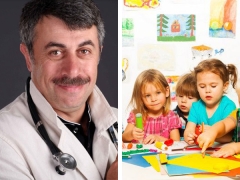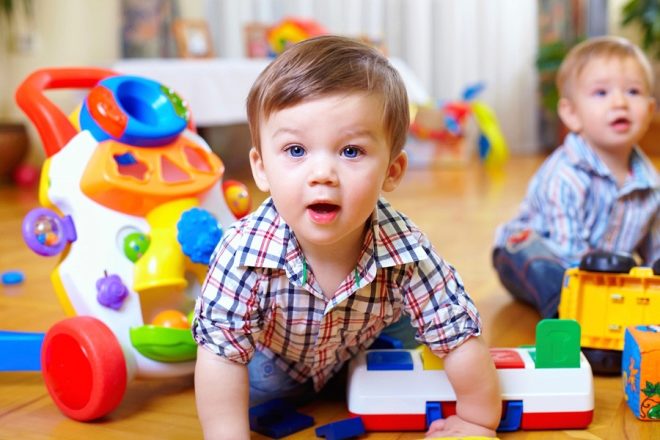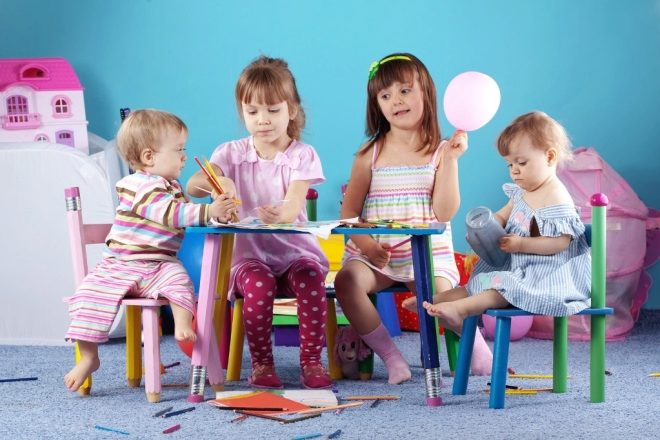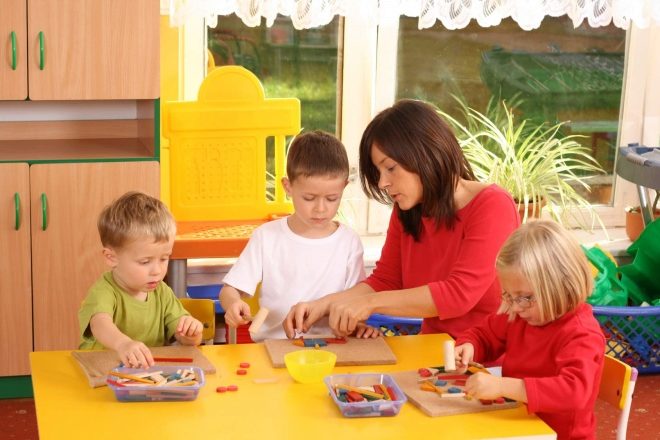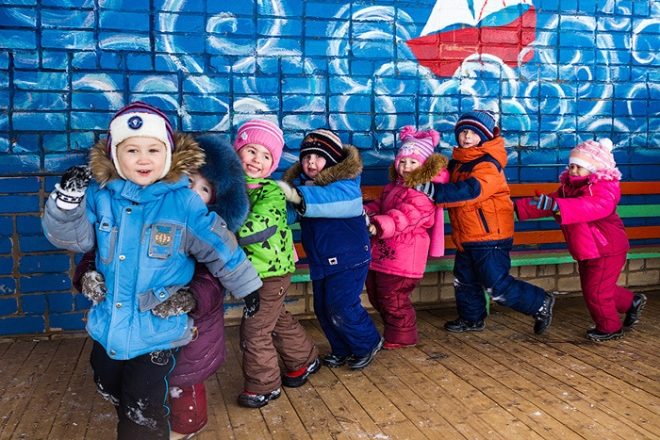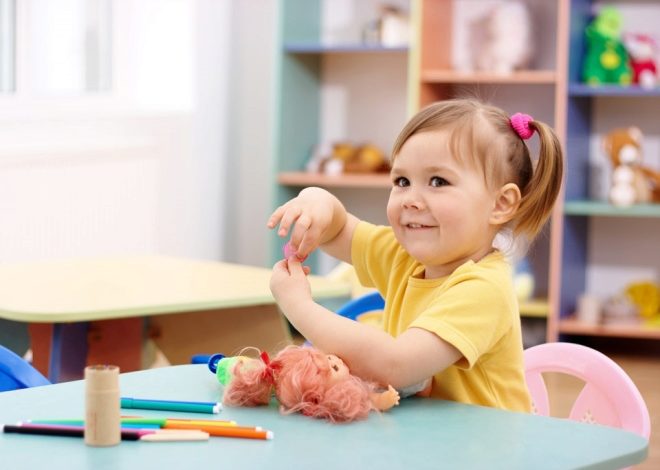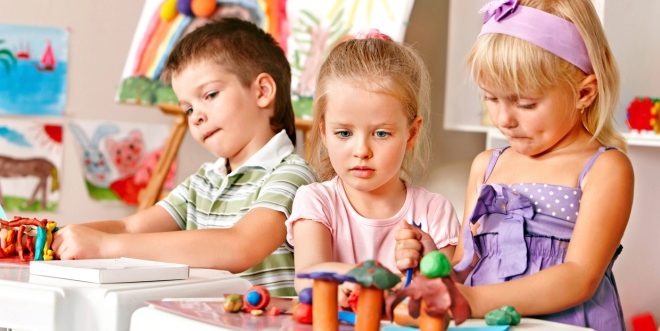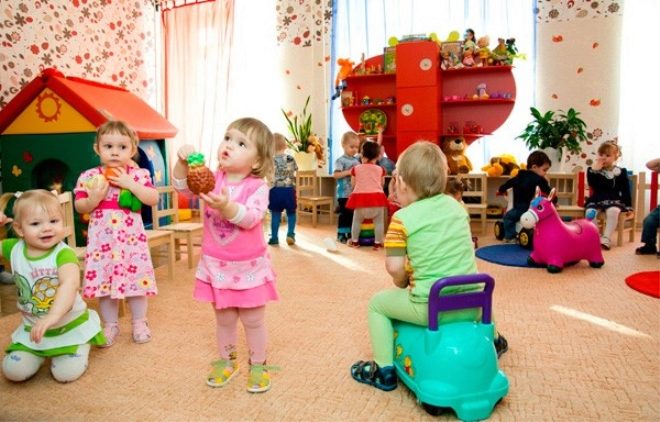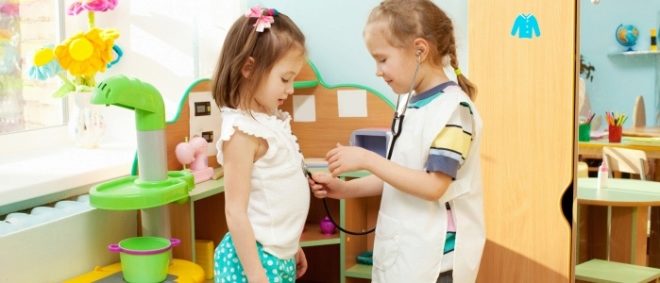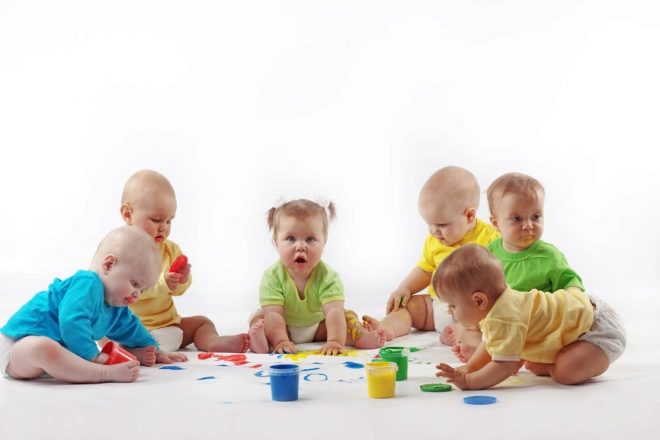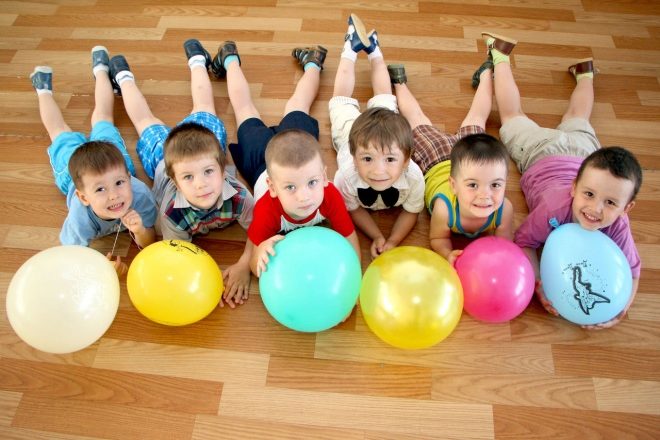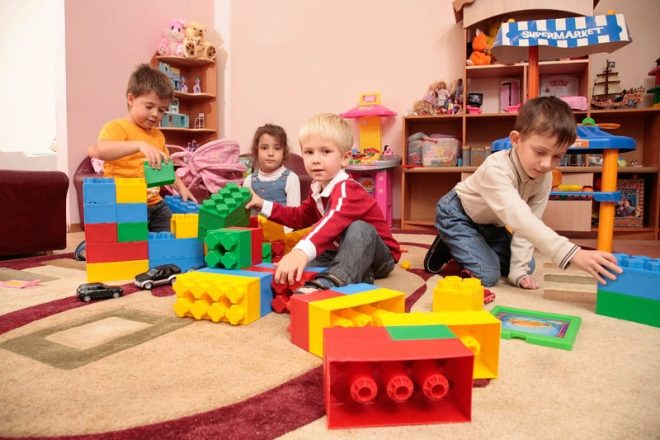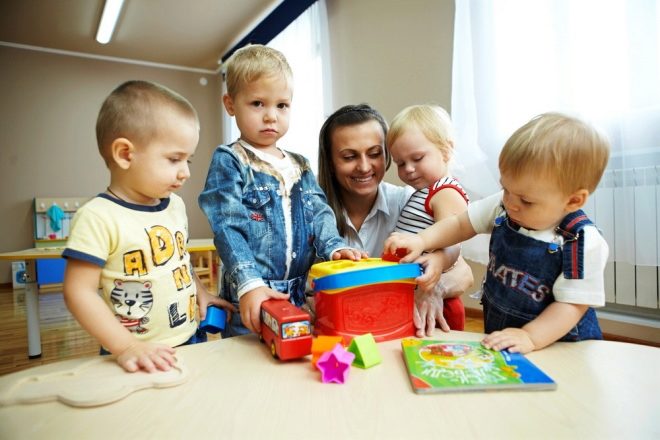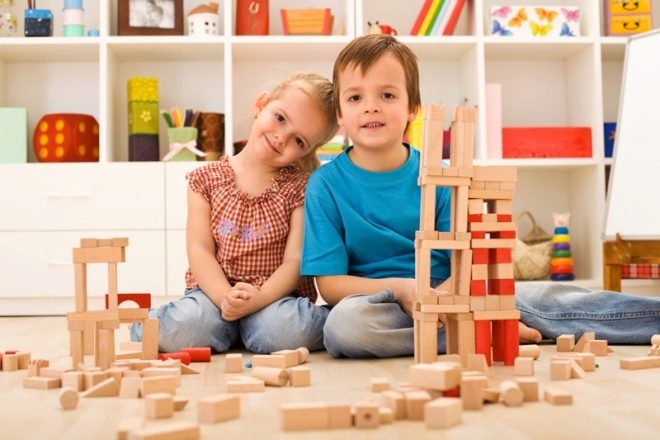Dr. Komarovsky about kindergarten
Kindergarten is a very important stage in a child’s life. When to give the child to the kindergarten, parents decide, depending on the welfare of the family, the employment of the mother and father at work, the presence of grandparents. But it has long been no question whether it should be done at all. Undoubtedly, the garden is good for the child. He teaches the child to adapt, make contacts, communicate, live in society. Without these skills, it will be difficult for a child to go to first grade and live on.
However, in connection with the visit to the kindergarten, moms and dads have a lot of questions that primarily concern the health of the baby. Authoritative pediatrician Yevgeny Komarovsky tells how to prepare a child for a responsible period in his life, how to overcome the difficulties of the first time and preserve children's health.
At what age is it better to give the child
This issue needs to be addressed only within the family. Usually, babies are brought into the kindergarten at the age of 1 to 3 years, less often - at an older age. Many kindergartens have recently introduced an unspoken restriction - up to one and a half years, children are not accepted. If there is any doubt whether it is time for the child to go to kindergarten, it is better to consult with teachers, educators, and a child psychologist. They will tell you if the baby is ready for life in a large team.
The doctors are more interested in what the mother will do when she takes the child to the kindergarten. If she decided to go to work on the same day, this is not the best solution, Komarovsky said. First, the child will be sick more often, and this is natural, which means that the mother will often have to take sick leave. And, secondly, the adaptation will be softer if the mother tries to “dose out” a visit to the kindergarten for her child at first.
The best option pediatricians, including Komarovsky, consider the situation when the mother remains at home on maternity leave for several months to be able to leave the child at home at any time if the first manifestations of the disease have appeared - a runny nose, a cough . This is good for the child as well, since he will more easily carry the disease, and for other children, whom he will not infect.
Dr. Komarovsky will tell you about what a "good kindergarten" is and how to approach the choice of kindergarten in the next issue.
Adaptation
This is the most difficult in the whole story with the start of a visit to the kindergarten. Evgeny Komarovsky emphasizes that there are no children who would not go through a difficult process of adaptation.. A lot of things happen to a child at once: he is experiencing, emotionally and psychologically, in his body too much is “rebuilt”. In the kindergarten - the day regimen, and therefore the child will, willy-nilly, have to adapt to it, the new food, the child’s immunity “gets acquainted” with new viruses circulating in the children's team, and hence the frequent morbidity, especially in the first time, while there are no specific antibodies.
How long the adaptation will last depends only on the child himself. In some, it is 2-3 months, in others - a year or more.
If parents can not influence the incidence, then they can easily make the adaptation easier for them. To do this, you need to choose the right time of year when the baby starts walking to the kindergarten.In the seasons of increased incidence (from late October to April) it is better not to do this, say Komarovsky. But in the late spring and summer - please.
Possible problems
Such a significant change in a child’s life, like a kindergarten, can entail a number of problems, both psychological and medical in nature. However, Komarovsky advises to prepare for them in advance. Best of all, since birth.
Hardening, an adequate attitude to the treatment of childhood diseases at an early age, to taking certain medicines, as well as preventive vaccinations, which are done on time and on schedule, is the best way to prepare your baby to attend a preschool institution.
Getting the child to new conditions, according to Komarovsky, is a purely individual process. One baby will quickly accept the new "conditions of the game", the other will resist change a little longer. These are mainly problems of a psychological kind, although sometimes against the background of an internal rejection of new conditions, a baby can get sick quite physically. Such a connection in medicine is called psychosomatics.
Weepiness and tantrums
These are the most common manifestations of psychological problems that any kid has started being sent to kindergarten. In this situation, Komarovsky recommends not to “inflate an elephant out of a fly”, not to write down the child in the sick. Soothing and sedatives are needed only for those children who are very sensitive to the new in their life, and if the children's doctors, a psychiatrist and a neurologist, believe that there is such a need.
But this situation is actually a rarity, and therefore you should not look for a “sedative for a nervous child.” The best tactics of parents - benevolence and benevolence. It is impossible to put pressure on the baby, to shout and force. This will only complicate the process of adaptation.
About how to wean a child from hysterics, in the next issue will tell the famous pediatrician Dr. Komarovsky.
Frequent diseases
Yevgeny Komarovsky considers this natural. Frequent diseases are mainly caused by viruses, and the probability of “catching up” them is higher if the child’s social circle is wider. Of course, sitting at home, your baby is less likely to get the flu or chicken pox, although it does not tend to zero, because parents can bring it from the street or guests. But you can not keep a child all his life at home!
His immunity should be “trained,” “trained,” strengthened, and for this he just needs to deal with pathogens.
In addition, there are a number of diseases that it is better to get sick in childhood, since for adults they are incredibly dangerous. This is all familiar chickenpox, rubella.
On the prevention of childhood diseases in kindergarten will tell Dr. Komarovsky.
According to Yevgeny Komarovsky, it is not the fact and the frequency of diseases “brought” from the kindergarten that deserve special attention, but the severity of these ailments. One baby is sick for five days quite easily, another two weeks is in bed, and then the parents can heal the consequences of complications for another month. This is in no way the preschool institution's fault. This is a feature of the immunity of each particular baby, as well as the specificity of its treatment.
Frequent illness of a kindergarten child should not be blamed on educators who did not dress their children for a walk, did not wear a scarf, or forgot about a cap. With this, parents conveniently mask their own inconsistency, says Komarovsky. First, they create greenhouse conditions for the baby, which actually “cripple” his immunity, and then complain that, having met with rain or a draft in the kindergarten, their baby has ached. The absence of such greenhouse conditions, the correct and adequate attitude of the parents to the child from birth, virtually nullify such “accidental” diseases in the kindergarten age.
How to choose a good kindergarten
The type of kindergarten, its material and technical support, the qualifications of teachers and nannies are not affected by the incidence rate, Yevgeny Komarovsky is sure. Therefore, to recommend a particular kindergarten, private or public, is not part of the duties of doctors.
But experts note that the kindergartens, where the groups are located in a normal building, with recent repairs, where there are not too many children in the group, are better suited for children. It is good if there is a swimming pool in a preschool institution, if people work there who understand how important it is to ventilate the premises, even in winter.
What child is considered "non-adic"
Such children by and large do not, says Komarovsky. This “diagnosis” is made by the caregivers and teachers, and sometimes the parents themselves, when the adaptation is too long or the child has learned to “start” the process of the disease for psychological reasons (the same psychosomatics).
On the concept of "Nesadikov child" and whether there is such a concept in general will tell Dr. Komarovsky in the issue below.
The trouble is, Komarovsky says, that in most of the gardens they do not observe the correct temperature regime, they do not monitor the humidity of the air. The teachers are horrified at the thought of opening the window and airing the group in the middle of winter. As a result, the child who breathes in the kindergarten with dry air in the overheated group gets sick more often. And this is mistakenly considered a contraindication to visiting kindergarten. It is about such children that they are said to be non-Sadikov.
To make such a “Nesadikovskiy” baby quite sadikovsky is real and quite simple, says Komarovsky. It is enough to create the right conditions in the group, strengthen the child’s immunity at home, encourage visiting the kindergarten, make it interesting.
Another question is if a child suffers from some serious illness, such as bronchial asthma, for example. These children need specialized kindergartens, but in fact they are not in the country. However, this does not mean that an asthmatic can not attend preschool. If parents try and find a kindergarten in which there are good doctors, tutors are trained to work with children with problematic health, then everything is real.
If a child is not overfed at home, they do not coot and do not teach him to eat only what they like, temper, do not give him pills for any more or less anxious reason, then such a kid will hardly be "unstable".
Tips for parents
- Be persistent and consistent. Then the child will quickly understand that kindergarten is now a reality with which he is better reconciled.
- If the child refuses to eat in the kindergarten, which is not uncommon, especially at first, warn the caregiver that you should not force-feed him, stuff soup or cereal "at any cost." The time will come, and he will begin to eat himself.
- Be sure to warn educators about what diseases your child has and what he has allergy.
- It is necessary to prepare for the kindergarten long before the first visit, expanding the child’s social circle - introducing him to the neighborhood with neighboring children.
